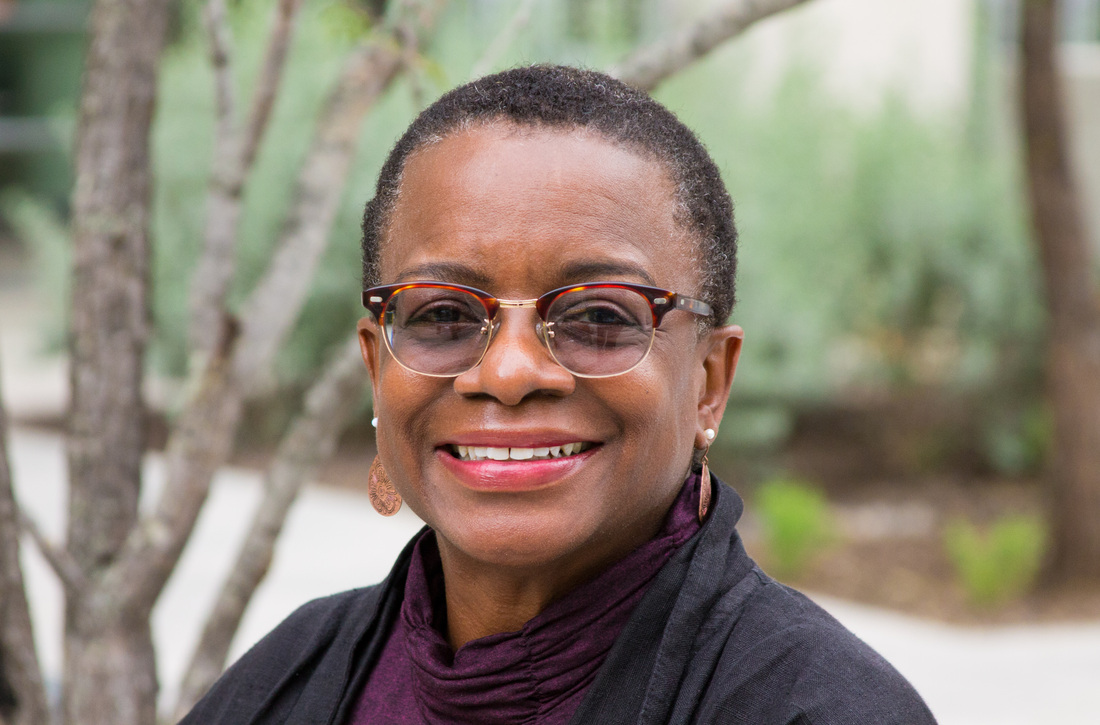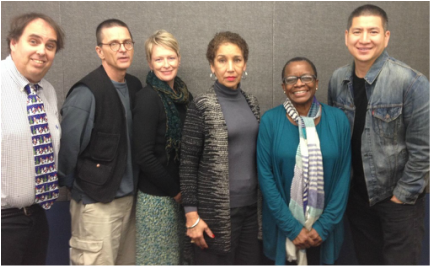|
Kathleen McElroy used to be the deputy sports editor at the Times. She was calm and smart and knew her sports, including the one called foo’ball. She is, after all, from Texas.
She was running our Olympic bureau in Atlanta in 1996 when the bomb went off after midnight, and she took charge, dispatching us into the darkness and the confusion. Later she moved up at the Times, editing the Sunday and Monday editions. She was the duty officer when the Columbia exploded in 2003. Somewhere along the line, she became part of our family, either my third sister or my third daughter -- not that she lacks for family, with sisters galore and the memory of Lucinda and George McElroy, both formidable. Kathleen’s middle initial is O. Not everybody knows that it stands for Oveta, as in Oveta Culp Hobby, who operated the Houston Post for decades – and under whose leadership George McElroy became the Post’s first African-American columnist. We always figured Kathleen was one of those out-of-towners who arrive in New York, scout out the restaurants and shops, discover a nice apartment, and stay forever. They are some of the best New Yorkers. But foo’ball may have been a tipoff. She is a Southwestern person. Kathleen chose to leave the Times, earning a scholarship to the University of Texas. This fall she defended her dissertation -- "Somewhere Between 'Us' and 'Them' -- Black Columnists and Their Role in Shaping Racial Discourse" -- and received her Ph. D. She is now teaching journalism at Oklahoma State University, with emphasis on the African-American experience. The other day Kathleen sent me a text message that said, “I want to make a difference.” We miss her at family gatherings, and expeditions around the city for the perfect barbecue or the perfect curry. She will make a difference.
Pete Bodo
12/8/2014 03:04:15 am
My, my, it reminds me how much fun it was to write for Kathleen back in the days of the "Outdoors" column, and its not supposed to be that way, right? You picked your family well, George!
George Vecsey
12/8/2014 04:47:52 am
First she would improve our copy, and then she would cook up some Texas chili -- remember the fest during the Open when she was in Forest Hills?
Pop,
George Vecsey
12/8/2014 04:53:01 am
George McElroy was very accomplished -- came out of the service, got himself hired by the Post, wrote a weekly column about real life for many years. (the link goes into detail). I find it fascinating that the infant with the middle name of Oveta came to fulfill the prophecy by becoming a journalist. I had lunch with him at Clyde Drexler's place in Houston. Formidable man.
Earl Wilson
12/8/2014 04:55:54 am
With Kathleen's busy sked during her time in New York City, she always found time to play tennis with a group of us. Tremendous player and always thought she was from New York with her city knowledge.
George Vecsey
12/8/2014 05:06:38 am
Earl, thanks. It's like an old O Henry short story. The person who knows New York so well is actually from Houston.
Kathleen McElroy
12/8/2014 08:32:36 am
Thanks, all, for your kind words! It took a global village for me to get this far, and all of you helped. Now let me know what I can do for you as we try to make the world a better place!
Harvey Araton
12/13/2014 03:37:49 am
Congrats, Kathleen. You've always made a difference Comments are closed.
|
Categories
All
|











